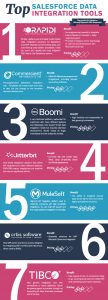What Can You Do with a Data Science Degree?
Big data and data science are popular topics among information technology specialists, as well as media outlets across the globe. The knowledge and skills that you obtain from a bachelor’s degree in data science arehighly useful in today’s job market. No matter what kind of industry you’re interested in going into, you’ll find that all jobs involve working with data. This is where a skilled data scientist comes into the equation, to filter out any red flags, analyze data, and find solutions to fix the problem.
You can look here at what a master’s degree in data science can bring you, teaching you valuable key skills and knowledge that can take you far in the working world. Once you’ve got your credentials, here are some of the roles that you can go into.
Data Scientist
Data scientists are responsible for collecting and reporting on data, as well as communicating their findings to both technology leaders and businesses to help them come up with new strategies on how to run their operation. Data scientists must have solid foundations in math, algorithms, human behavior, and computer science. Some of the other requirements of a data scientist include conducting extensive research, sifting through data to remove irrelevant information, and using complicated analytics programs to prepare data. A good data scientist must have statistical thinking skills and know how to work well under pressure.
Statistician
Statisticians are individuals who use mathematical techniques to identify, analyze and interpret data. While statisticians tend to work predominately in office environments, they may also travel to supervise surveys or collect data. Some of the key duties of a statistician include determining methods for finding or collecting data, gathering data or training others to do so, as well as designing surveys, experiments, and opinion polls to collect data. If you are interested in becoming a statistician, the average salary for this role currently stands at $91,000 per year. Statisticians must have excellent computer literacy, mathematical ability, a clear knowledge of statistical concepts and terms, as well as written and oral communication skills. There will be numerous challenges that you will face during your statistician career, so it’s vital that you know how to problem solve.
Data Analyst
A data analyst is responsible for collecting, handling, and performing statistical analyses of data. This role requires you to translate numbers and data that helps businesses and organizations how to make better decisions in their operation. Whether it’s sales figures, market research, or transportation costs, all companies collect data. Data analysts gather this data and work out a variety of things, like how to lower transportation costs, price new materials, or deal with problems that cost the business money. The average salary for a data analyst is $44,000 per year.
Business Intelligence Analyst
Business intelligence analysts help businesses put the data they have already collected to use byrecommending steps to increase the organization’s efficiency and increase profits. Business intelligence analysts comb through large quantities of data by effectively querying databases, as well as producing reports and identifying trends to help companies manage their workflow better. To become a business intelligence analyst, you will need to earn your undergraduate degree, complete an internship, undergo entry-level work experience, as well as obtain a professional certification. Other duties of a business intelligence analyst include meeting with clients to identify their needs and concerns, conducting information gathering interviews, and gathering feedback from customers and clients, as well as creating summary reports.
Database Administrator
Database administrators are individuals who use software to house and manage data, such as customer shipping records and financial data. Database administrators need to ensure that the data is accessible to users and is secure from third parties and unauthorized access. There are numerous industries that you can work in as a database administrator, such as computer systems design, banks, insurance companies and hospitals. Some of the key duties that you will be expected to carry out as a database administrator include making and testing modifications, maintaining the database, and updating permissions.
Big Data Engineer
A big data engineer is someone who constructs and operates a company’s big data infrastructure. Big data engineers must have extensive knowledge of big data querying tools like Hive, Pig, and Impala, as well as experience with Spark. Big data engineers must have experience in implementing ETL processes, monitoring performance, and selecting and integrating big data tools and frameworks. There are numerous key skills that a big data engineer must have, including analytical skills, data visualization skills, and familiarity with business domains.
Machine Learning Engineer
Machine learning engineers develop algorithms that are centered on statistical modeling techniques, as well as constructing and sustaining scalable machine learning solutions. If you are passionate about computer science, and like the idea of being part of a persistentlyevolvingtrade, a career in machine learning engineering may be the perfect career path to take. Machine learning engineers are responsible for understanding and using computer science fundamentals, using exceptional mathematical skills to perform computations, as well as producing project outcomes and isolating issues that need to be fixed.
Data Architect
The primary role of a data architect is to produce blueprints and designs for a data management system. Once you have assessed an organizations potential data sources, a data architect designs a plan to integrate, protect and maintain them, allowing employees to view critical information. Some of the duties you may be required to perform include collaborating with IT teams and management to create data strategies, building an inventory of data, developing data models for database structures, and identifying and evaluating current data management procedures and technologies. To work as a data scientist, you will need to obtain credentials in computer science, engineering, or a related field. There are lots of technical skills that data architects must possess, including development environment software and data mining.
Enterprise Architect
As an enterprise architect, you will be responsible for overseeing and maintaining a company’s IT services and networks, as well as overseeing, changing, and upgrading enterprise services. Enterprise architects need to stay alert and in the know of the latest technologies and trends, as well as be on the lookout for software, hardware or services that may enhance company processes. Some of the key attributes an enterprise architect needs include critical and complex thinking, and excellent communication skills. Enterprise architects must also possess analytical skills to make sure that company units have the correct tools to be successful.
Infrastructure Architect
Infrastructure architects work alongside business leaders to establish the outcomes that a system or technical project should deliver. They are also in charge of designing, building, and deploying a technical project, as well as assess existing systems to make sure that they meet company requirements. Infrastructure architects must have vast experience in developing network infrastructure solutions, be proficient in network security, ITIL strategy, and have a solid grasp of structural design principles and statements of work. Infrastructure architects must also have sound knowledge of virtualization technologies and network architectures.
Applications Architect
In the technology sector, an application architect plays a key role in the analysis and design of software projects. Application architects create new applications or enhance existing applications, as well as develop product prototypes, run software tests, and create technical manuals and documents which relate to application development. Application architects must know how to apply design and testing methods, build teams, create custom solutions, and integrate applications with existing systems. Some of the key skills that an applications architect must possess include communication skills and time management skills. To thrive in this role, you must be able to think both as a technical expert and a businessperson.
Machine Learning Specialist
A machine learning specialist is responsible for creating new algorithms and artificial intelligence-based solutions. The result of their work tends to be suited and designed especially for the company that hires them. There are numerous skills that you must have to work as a machine learning specialist, including statistics, data modeling, probability, programming skills and software design. To become a machine learning specialist, you need to understand the basics, learn statistics, and create unsupervised learning models.
Data Engineer
Data engineers are responsible for managing a company’s data infrastructure. This job requires far less statistical analysis when compared with other roles; however, there is more programming and software development skill required. Data engineers may also need to build data pipelines to get the latest revenue, marketing, and sales data. Data engineers are also likely to build and maintain the infrastructure needed to house and quickly access data from the past. Some of the skills required for a data engineer position tend to be heavily focused on software development. You must have advanced programming skills and advanced SQL skills. Being familiar with systems like PostgresSQL can also help.
Data science experts are critical in virtually every job sector, so no matter what roles interest you the most, there are numerous paths that you can take once you have completed your bachelor’s and master’s degree in data science.






